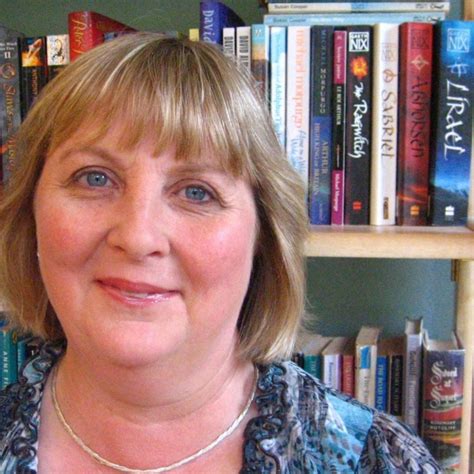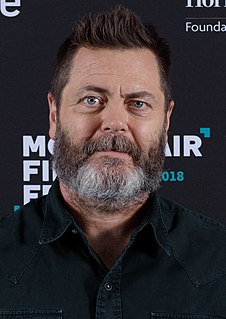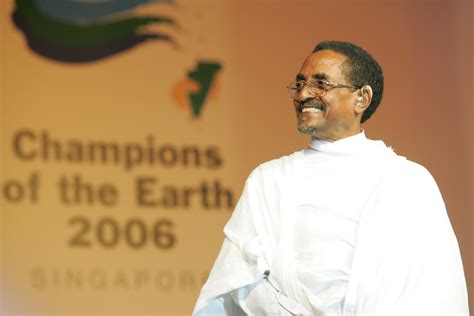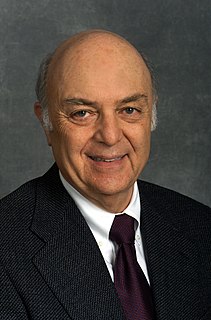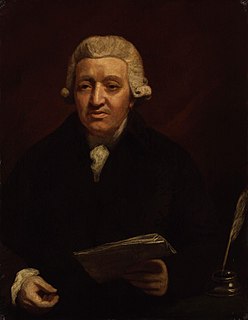Top 331 Crop Quotes & Sayings - Page 6
Explore popular Crop quotes.
Last updated on April 16, 2025.
We have the illusion of freedom only because so few ever try to exercise it. Try it sometime. Try to save your home from the highway crowd, or to work a trade without the approval of the goons, or to open a little business without a permit, or to grow a crop without a quota, or to educate your child the way you want to, or to not have a child. We all have the freedom of a balloon floating in a pin factory.
It had come to me not in a sudden epiphany but with a gradual sureness, a sense of meaning like a sense of place. When you give yourself to places, they give you yourself back; the more one comes to know them, the more one seeds them with the invisible crop of memories and associations that will be waiting for you when you come back, while new places offer up new thoughts, new possibilities. Exploring the world is one of the best ways of exploring the mind, and walking travels both terrains.
The imagination doesn't crop annually like a reliable fruit tree. The writer has to gather whatever's there: sometimes too much, sometimes too little, sometimes nothing at all. And in the years of glut there is always a slatted wooden tray in some cool, dark attic, which the writer nervously visits from time to time; and yes, oh dear, while he's been hard at work downstairs, up in the attic there are puckering skins, warning spots, a sudden brown collapse and the sprouting of snowflakes. What can he do about it?
The American people have no idea they are paying the bill. They know that someone is stealing their hubcaps, but they think it is the greedy businessman who raises prices or the selfish laborer who demands higher wages or the unworthy farmer who demands too much for his crop or the wealthy foreigner who bids up our prices. They do not realize that these groups also are victimized by a monetary system which is constantly being eroded in value by and through the Federal Reserve System.
Kiran says (the shelf) is full of stories. If it is, then I like fairy stories. Fairy stories are fair. In them wishes are granted, words are enchanted, the honest and brave make it safely through to the last page and the baddies either have to give up their wickedness for ever and ever, no going back, or get ruthlessly written out of the story, which they hardly ever survive. Also in fairy stories there are hardly any of those half-good half-bad people that crop up so constantly in real life and are so difficult to believe in.
For years now I've kind of operated under an informal shopping cycle. A bit like a farmer's crop rotation system. Except, instead of wheat, maize, barley, and fallow, mine pretty much goes clothes, makeup shoes, and clothes (I don't bother with fallow). Shopping is actually very similar to farming a field. You can't keep buying the same thing, you have to have a bit of variety. Otherwise you get bored and stop enjoying yourself.
Note even Jonathan Swift would dare to write a satire in which politicians argued that - in a world where species are vanishing and more than a billion people are barely able to afford to eat - it would somehow be good for the planet to clear rain-forests to grow palm oil, or give up food-crop land to grow biofuels, solely so that people could burn fuel derived from carbohydrate rather than hydrocarbons in their cars, thus driving up the price of food for the poor. Ludicrous is too weak a word for this heinous crime.
...a very terrifying aspect of our society, and other societies, is the equanimity and the detachment with which sane, reasonable, sensible people can observe [war and human suffering]. I think that's more terrifying than the occasional Hitler ...or other that crop up - these people would not able to operate were it not for this apathy and equanimity - and therefore I think that it is in some sense the sane and reasonable and tolerant people who should share a very serious burden of guilt, that they very easily throw on the shoulders of others who seem more extreme and more violent.
Editors can be stupid at times. They just ignore that author's intention. I always try to read unabridged editions, so much is lost with cut versions of classic literature, even movies don't make sense when they are edited too much. I love the longueurs of a book even if they seem pointless because you can get a peek into the author's mind, a glimpse of their creative soul. I mean, how would people like it if editors came along and said to an artist, 'Whoops, you left just a tad too much space around that lily pad there, lets crop that a bit, shall we?'. Monet would be ripping his hair out.
On the whole, my respect for my fellow-men, except as one may outweigh a million, is not being increased these days.... Such do not know that like the seed is the fruit, and that, in the moral world, when good seed is planted, good fruit is inevitable, and does not depend on our watering and cultivating; that when you plant, or bury, a hero in his field, a crop of heroes is sure to spring up. This is a seed of such force and vitality, that it does not ask our leave to germinate.
We have so many alternatives, like kenaf. It produces more crop, it's hardier, and creates incredible paper products. Why are we deforesting for pulp and paper when we have a logical and efficient solution in plants like kenaf or bamboo? It doesn't make sense to me at all. I'm inviting anyone else who thinks the same to reach out and get involved with our think tanks around creating tree free alternatives ASAP.
I think a lot of people - to be candid about it - are like, if Donald Trump can be president, so can I. And I think there's a whole crop, a new generation of people who aren't on the tip of anyone's tongue, just like Bill Clinton wasn't on anyone's tongue; just like a lot of people didn't expect Barack Obama to take off like he did. I think we will have a lot of new people running, and there are obviously a lot of fantastic people who have run before, or standard-bearers, right. All right. So, I think there's just going to be a ton of those people.
Turn off your computer and go out of doors. Dig a large enough hole to transplant a mature apple tree. Nurture the tree, feed it, coddle it so that its fruit will be ample, bright and firm. Practice open-hand strikes against the rough bark of the trunk until it's time to harvest. Choose the champion of your apple crop, pluck it from the tree, and beat yourself about the face and tits with it until your mettle will suffice.
The mode of clearing and planting is to fell the trees, and burn once what will burn, then cut them up into suitable lengths, rollinto heaps, and burn again; then, with a hoe, plant potatoes where you can come at the ground between the stumps and charred logs; for a first crop the ashes suffice for manure, and no hoeing being necessary the first year. In the fall, cut, roll, and burn again, and so on, till the land is cleared; and soon it is ready for grain, and to be laid down.
Children are our crop, our fields, our earth. They are birds let loose into darkness. They are errors renewed. Still, they are the only source from which may be drawn a life more successful, more knowing than our own. Somehow they will do one thing, take one step further, they will see the summit. We believe in it, the radiance that streams from the future, from days we will not see. Children must live, must triumph. Children must die; that is an idea we cannot accept.
I am the stereo-typical classic lapsed Catholic. Religious themes crop up in my songs sometimes as metaphors and other kinds of touchstones for getting at issues and "deeper issues," and all that. Right now, honestly, I think all religion is proving itself to be a NET negative on the human race. I recognize its valuable place in individual lives and many larger communities - I know the good that is done in its various names all over the world, but I don't believe in it anymore, and I see the negative aspects dragging us down at a much faster rate than the positive ones are bouying us up.
If we took 75% of the world’s trashed rangeland, we could restore it from agriculture back to functioning prairies — with their animal cohorts — in under fifteen years. We could further sequester all of the carbon that has been released since the beginning of the industrial age. So I find that a hopeful thing because, frankly, we just have to get out of the way. Nature will do the work for us. This planet wants to be grassland and forest. It does not want to be an agricultural mono-crop.
Science is a capital or fund perpetually reinvested; it accumulates, rolls up, is carried forward by every new man. Every man of science has all the science before him to go upon, to set himself up in business with. What an enormous sum Darwin availed himself of and reinvested! Not so in literature; to every poet, to every artist, it is still the first day of creation, so far as the essentials of his task are concerned. Literature is not so much a fund to be reinvested as it is a crop to be ever new-grown.
Among the environmental trends undermining our future are shrinking forests, expanding deserts, falling water tables, collapsing fisheries, disappearing species, and rising temperatures. The temperature increases bring crop-withering heat waves, more-destructive storms, more-intense droughts, more forest fires, and, of course, ice melting. We are crossing natural thresholds that we cannot see and violating deadlines that we do not recognize.
This generation has altered the composition of the atmosphere on a global scale through radioactive materials and a steady increase in carbon dioxide from the burning of fossil fuels. Entire regional airsheds, crop plant environments, and river basins are heavy with noxious materials. Motor vehicles and home heating plants, municipal dumps and factories continually hurl pollutants into the air we breathe. Each day almost 50,000 tons of unpleasant, and sometimes poisonous, sulfur dioxide are added to the atmosphere, and our automobiles produce almost 300,000 tons of other pollutants.
The Nuffield report suggests that there is a moral imperative for investment into GM crop research in developing countries. But the moral imperative is in fact the opposite. The policy of drawing of funds away from low-cost sustainable agriculture research, towards hi-tech, exclusive, expensive and unsafe technology is itself ethically questionable. There is a strong moral argument that the funding of GM technology in agriculture is harming the long-term sustainability of agriculture in the developing world.
Oh yeah, I'm the president of the lucky club. There are so many talented people who don't work. And the crop of young actors I'm surrounded by is incredible. When you have people like that around you it amps you up a little bit. Also, Emile Hirsch and Joseph Gordon-Levitt, or guys like Ryan Gosling. It's a really good crowd and I feel I'm coming up at a good time. But equally, there's a lot of good young actors who don't get to work who are more talented than I. I'm just lucky.
My friend had a brilliant idea. This impressed me. It reflected an immense deal of credit on his brain. But when he expressed it,it lost all value, and enjoyed but a commonplace status. My friend blamed this devaluation on the language. "I hate English," he said. So he studied another language. He mastered it so perfectly that there was no room left in his brain for a brilliant idea. Now he has a grudge against words. He refuses to use them. He prefers to shrug or grunt. A new crop of ideas is growing. They show promise of future refinement.
My lord, lawyers are a dangerous species of animals till ha'e any dependence upon--they are always starting punctilios and deeficulties among friends. Why, my dear lord, it is their interest that aw mankind should be at variance; for disagreement is the vary manure wi' which they enrich and fatten the land of leetigation; and as they find that constantly produces the best crop, depend upon it they will always be sure till lay it on ass thick ass they can.
If nature has been frugal in her gifts and endowments, there is the more need of art to supply her defects. If she has been generous and liberal, know that she still expects industry and application on our part, and revenges herself in proportion to our negligent ingratitude. The richest genius, like the most fertile soil, when uncultivated, shoots up into the rankest weeds; and instead of vines and olives for the pleasure and use of man, produces, to its slothful owner, the most abundant crop of poisons.
The path towards sustainable energy sources will be long and sometimes difficult. But America cannot resist this transition, we must lead it. We cannot cede to other nations the technology that will power new jobs and new industries, we must claim its promise. That's how we will maintain our economic vitality and our national treasure-our forests and waterways, our crop lands and snow-capped peaks. That is how we will preserve our planet, commanded to our care by God. That's what will lend meaning to the creed our fathers once declared.
How much courage does it take to fire up your tractor and plow under a crop you spent six or seven years growing? How much courage to go on and do that after you've spent all that time finding out how to prepare the soil and when to plant and how much to water and when to reap? How much to just say, "I have to quit these peas. Peas are no good for me, I better try corn or beans.
You can have a strong economy or you can help the environment, but you can't do both at the same time. That's ridiculous. In fact, as a sustainable vision for a healthy economy has to involve changing our energy policy and changing with respect to the natural world. Because we're hitting nature's thresholds, we're hitting nature's limits with respect to water and crop yields and energy use and fossil fuels heating the atmosphere at the same time we're past global peak and running out of that.
The New York book was a visual diary and it was also kind of personal newspaper. I wanted it to look like the news. I didn’t relate to European photography. It was too poetic and anecdotal for me… the kinetic quality of new york, the kids, dirt, madness—I tried to find a photographic style that would come close to it. So I would be grainy and contrasted and black. Id crop, blur, play with the negatives. I didn’t see clean technique being right for New York. I could imagine my pictures lying in the gutter like the New York Daily News.
The metaphor is perhaps one of man's most fruitful potentialities. Its efficacy verges on magic, and it seems a tool for creation which God forgot inside one of His creatures when He made him. All our faculties keep us within the realm of the real, of what is already there. The most we can do is to combine things or break them up. The metaphor alone furnishes an escape; between the real things, it lets emerge imaginary reefs, a crop of floating islands.
a laotong relationship is made by choice...when we first looked in each other's eyes in the palanquin I felt something special pass between us--like a spark to start a fire or a seed to grow rice. But a single spark is not enough to warm a room nor is a single seed enough to grow a fruitful crop. Deep love--true-heart love--must grow.




